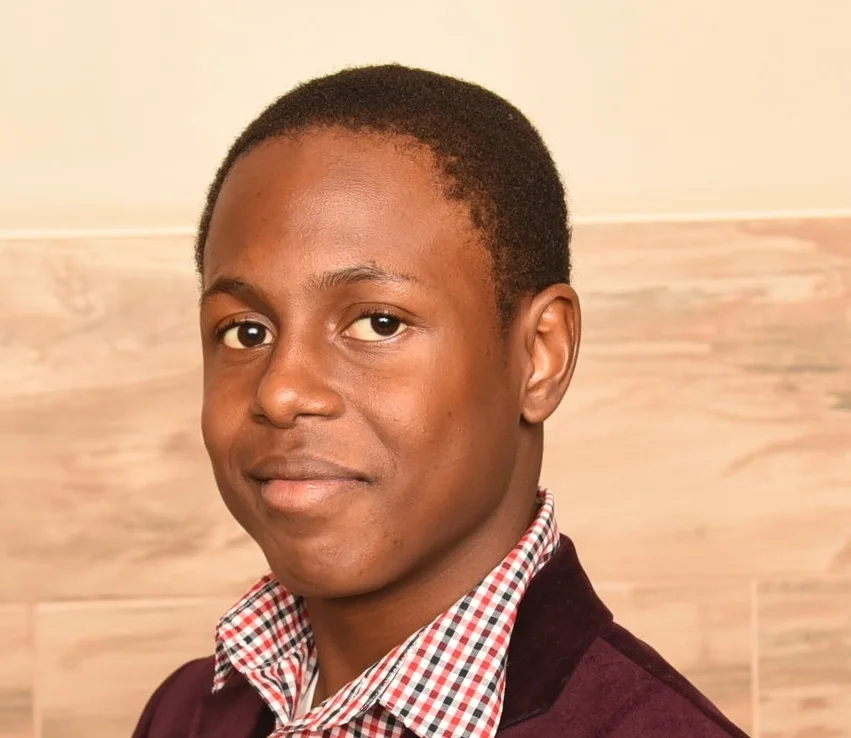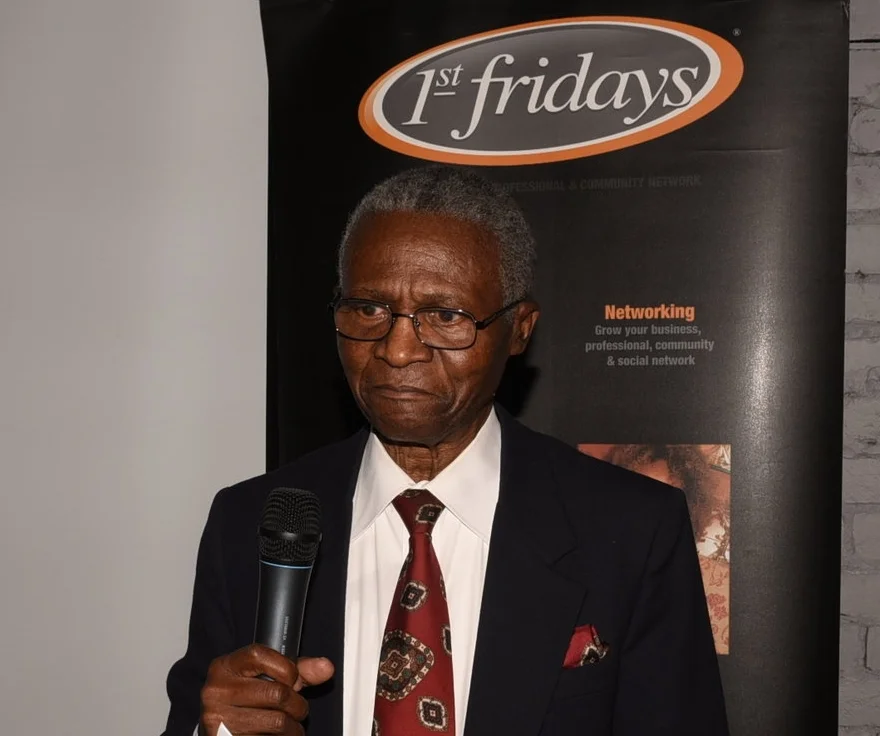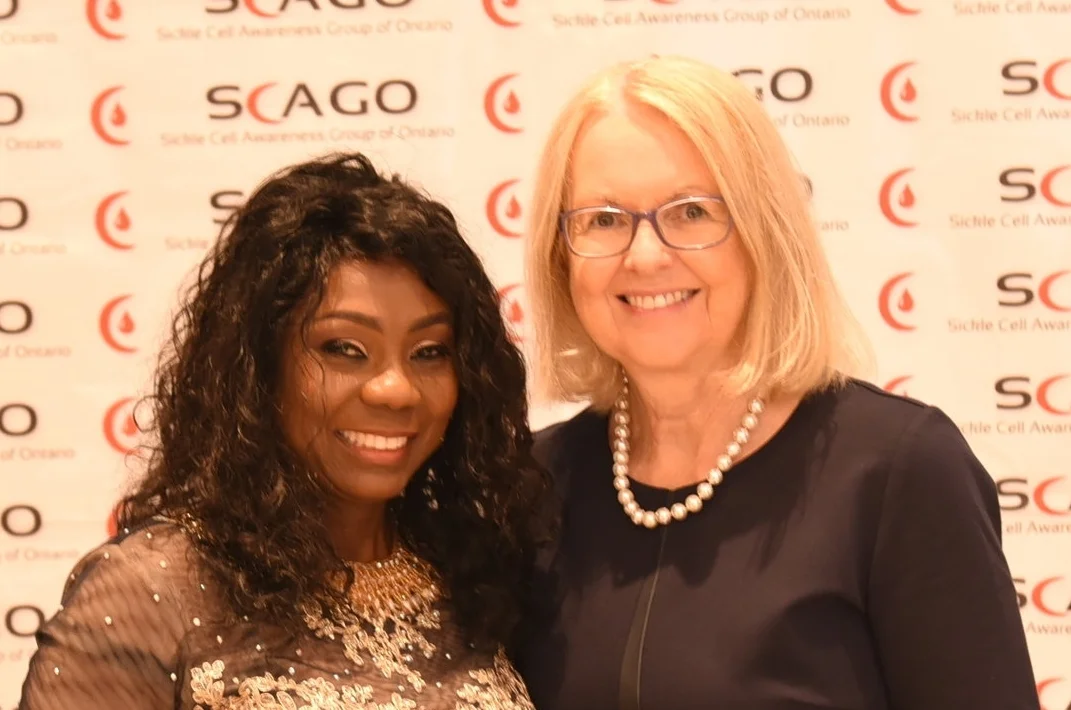Camp Jumoke helping kids cope with sickle cell disease
December 8, 2017
There are unexpected things that happen that you really can’t prepare for.
Away from home for the first time attending a two-week summer camp, Johanne Konan was expecting a big hug from her two daughters – Elisa and Ines -- on their return.
“When the bus pulled up, I thought they would have come running to me, saying ‘We missed you mom and we love you’,” said the Ivory Coast immigrant. “Instead, the first words out of their mouths were, ‘Can we go back’. I was stunned.”
George Ofori and Johanne Konan with their kids Elisa and Ines
After the initial shock wore off, Konan and George Ofori were relieved to know that their girls – they were born with sickle cell – relished their time at Camp Jumoke.
Established in 1994 by the Association for the Advancement of Blacks in Health Sciences, it is the only camp of its kind in Canada that serves the unique emotional and health care needs of children with sickle cell disease.
“As a father, I was worried when they left because you can’t reach them by phone to check and see how they are doing,” said Ofori at the organization’s 14th annual Beverly Mascoll Memorial scholarship dinner recently. “But after the first week, I started to relax a bit, figuring that no news is good news. It was a great experience for them and it’s good to know they got an opportunity to learn at a young age what social life is. At first, they were hesitant about going, but once they got there, it was obvious they were extremely happy among the other campers.”
Konan, who learnt about Camp Jumoke through networks after regular visits to the Hospital for Sick Children (HSC) with her daughters, spoke about the challenges of raising children with sickle cell.
“As a parent, it’s already difficult raising children without a disease,” she pointed out. “That dynamic changes drastically when you have a child or, in our case two children, who have the disease. You have to be able to recognize the signs and be knowledgeable to know how to deal with crisis. As much as children may show strength on the outside, they are extremely weak when faced with a crisis.”
A total of 16 young people between the ages of nine and 15 attended last summer’s camp.
Camp Jumoke relies on private funding for its initiatives. The cost of attending the camp is almost $2,200 for a child and it covers transportation, programming, food and accommodation.
“When you think about it, there are many parents who don’t have that kind of money to send their children to a summer camp,” said Charles Matthews, whose 10-year-old son, Darien Lewis-Matthews, has the disease. “So it’s really worth it to come out here and support this event which is a fundraiser for Camp Jumoke.”
Charles Matthews and his son Darien Lewis-Matthews
A disease that affects mostly people of African descent, sickle cell is a life-threatening and hereditary blood disorder that causes malformation of red blood cells that become distorted when they transmit oxygen through the body.
Matthews learned about the disease before his son’s birth.
“I was single and a friend of mine daughter has sickle cell,” he said. “The mother gave me a pin with the words, ‘Know you Sickle Cell Status’. I wore it proudly. When I got married a few years later and found out our first child has the disease, I became an even more vocal advocate as it was personal now.”
Lewis-Matthews has been to the camp on two occasions.
“I heard that kids changed after going to the camp and I can attest to that,” Matthews said. “When they come back, they are confident and they look and act different. They grow up in a hurry, it seems, because their parents are not at the camp to baby them.”
Judy Grandison joined Camp Jumoke after her son, Kamau, was born with sickle cell 10 years ago.
Starting as a fundraiser in 2009, she became a volunteer director and president of the organization.
“The work we do here is important,” Grandison said. “It is vital that children living with sickle cell disease know and understand that they do not have to live a life of limitation based on the fact that they have this terrible disease.”
Judy Grandison and her 10-year-old son Kamau
Her son has attended three camps.
“When he’s down, we start with drugs at home that physicians at the haematogly clinic have prescribed,” Grandison said. “That’s Tylenol and ibuprofen for adults. If those don’t work, I move to morphine which has side effects. That just tells you how strong the pain can get. If the medication doesn’t work, I take him to Sick Kids where children with sickle cell disease are a priority. I am in a room in half-an-hour and he’s on intravenous medication to manage the pain.”
Asaiah Edwards was the recipient of this year’s $2,000 Beverly Mascoll Memorial scholarship.
Diagnosed with sickle cell anemia when he was just three months old, life has been challenging for the Bendale Business & Technical Institute Grade nine student who aspires to be an engineer or architect.
He was admitted to hospital nearly 30 times in his first two years and his mother, Kai Gordon, has spent countless hours accompanying the younger of her two children to the HSC where he has had over 60 blood transfusions since 2008.
Two years ago, he started hydroxyurea treatment that’s reducing the painful episodes.
“I was at Camp Jumoke this summer for a few days, and I saw first-hand how involved Asaiah was,” said Grandison. “He displayed a keen sense of responsibility and he was very friendly and engaging.”
In addition to the cash award, Edwards is going to be a Camp Jumoke ambassador for the next year.
“I am very happy with this honour and I am going to try to do my best to represent Camp Jumoke very well,” he added.
Four years ago, Edwards was the first HSC patient to secure a Children’s Maracle Network Champions recognition.
Presented by Walmart, the program celebrates the life-saving work done at children hospitals across the country. Each year, 12 patients are selected to represent the hospital at which they are treated and the millions of young people who visit Canadian paediatric hospitals.
As part of the selection process, Edwards and the rest of the kids from across the country made a verbal presentation about their illnesses and challenges they faced in front of a judging panel. Their reward was a one-week trip to Walt Disney Resort in Orlando.
Edwards was accompanied by his mother, uncle and older brother Shomari.
Asaiah Edwards and his mom Kai Gordon
At age two, his spleen was removed after his red blood cells were trapped and destroyed in the organ that acts primarily as a blood filter. When this occurs, the spleen is damaged and may become enlarged, leading to splenic sequestration crises that result in abdominal pain, a rapid heart rate and other symptoms. Such an attack can be fatal without prompt treatment.
He was also diagnosed with attention deficit hyperactivity disorder that’s a common childhood behavioural disorder.
Mascoll’s name was attached to the scholarship 13 years ago. She passed away in May 2001.
At the time of her death, the entrepreneur, philanthropist and Order of Canada recipient – was the president of Mascoll Beauty Supply Ltd., and a staunch supporter of Camp Jumoke.
Dr. Isaac Odame, the Global Sickle Cell Disease Network medical director, was the keynote speaker at annual award celebration. Under his leadership, sickle cell disease clinicians and scientists across Africa, the Caribbean, Middle East, India, Europe, North and South America are working more collaboratively in research initiatives aimed at delivering interventions that are evidence-based, cost-effective and sustainable over the long-term, particularly in low-income countries with the highest disease burden.
Odame played a key role in the design and implementation of universal newborn screening for sickle cell disease in the province and the Toronto General Hospital day program for children which reduces wait times and admissions.
Individuals interested in volunteering with Camp Jumoke can call the office at (416) 410-2995 or send emails to president@jumoke.org. or info@jumoke.org.
The organization’s website is www.jumoke.org.










